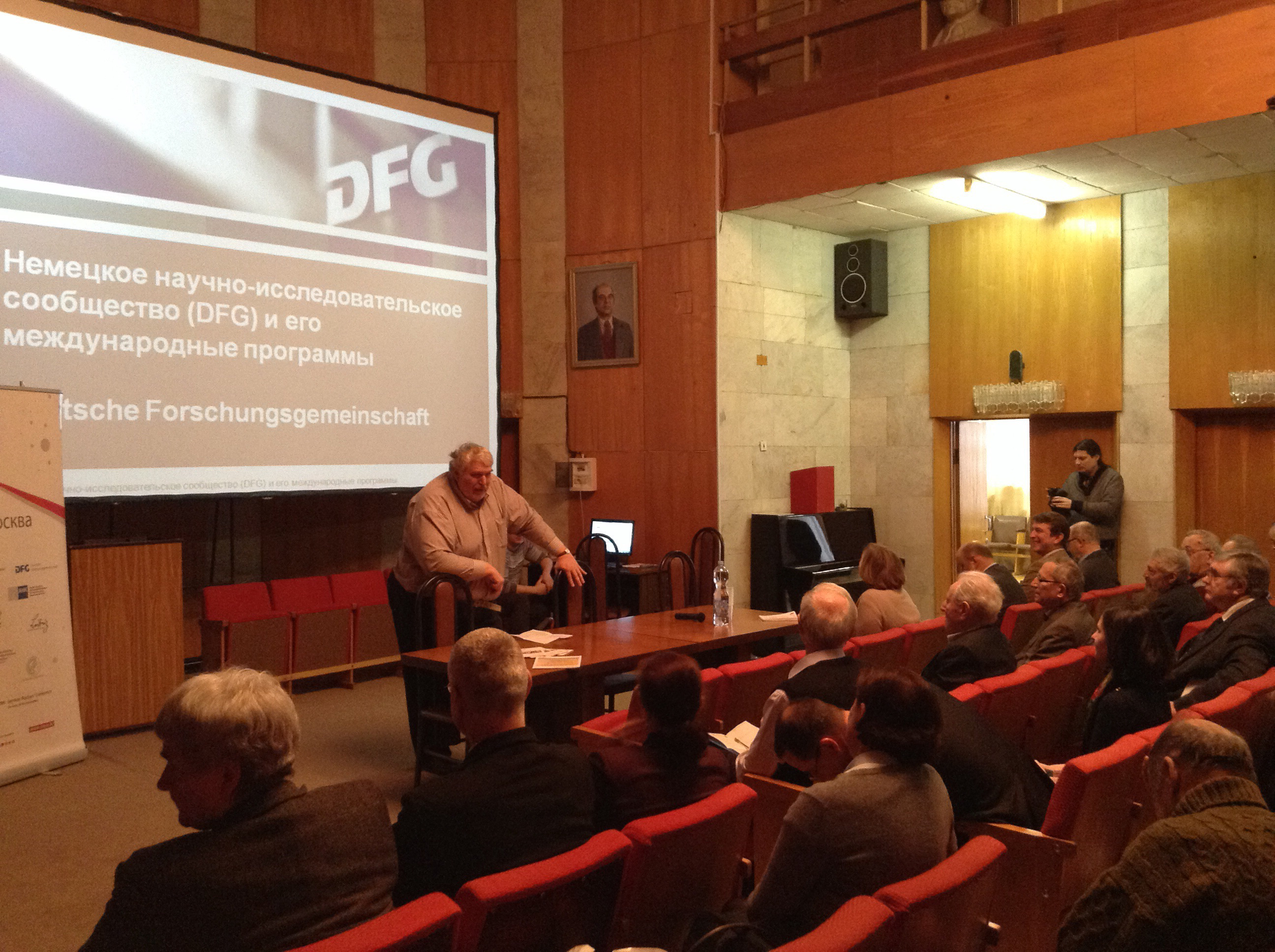DFG Attends DWIH Information Seminar in Troitsk
(27.01.16) In January the Deutsche Forschungsgemeinschaft (DFG, German Research Foundation) and other funding organisations and research institutions took part in an information trip to Troitsk. It was organised by the German House for Research and Innovation in Moscow (DWIH Moscow). The aim of the visit to the "science city" located a short distance from Moscow was to present funding programmes to the institutes of the Troitsk Scientific Center of the Russian Academy of Sciences.

Director Victor Zadkov opens the information event at the Institute of Spectroscopy in Troitsk
Delegates from the DFG, the German Academic Exchange Service (DAAD), the Helmholtz Association of German Research Centers (HGF), the Free University of Berlin and the Moscow representative of the Ministry of Innovation, Science and Research of the State of North Rhine-Westphalia travelled to Troitsk on 19 January. A public information event and background talks featuring the Head of the Troitsk Scientific Center of the Russian Academy of Sciences and the Mayor of the city of Troitsk were on the agenda.
Around 50 interested researchers from various research institutions in Troitsk attended the information seminar at the Institute of Spectroscopy. The DFG's talk mainly outlined the funding opportunities with its Russian partner organisations, including the Russian Foundation for Basic Research (RFBR) and the Russian Science Foundation (RSF). Research activities in the "science city" of Troitsk focus on various domains of physics and their collaborations with German partners have received long-standing support from the DFG.
Aside from Troitsk, there are seven other science cities located in the Moscow region and a total of thirteen across the whole of Russia. The idea of creating so-called "naukogrady" (English: "science cities") is a relatively new one in contrast to the "akademgorodki" (English: "academic towns") founded during the Soviet era. The status of a "science city" has been governed by law since 1999 and is awarded by the government of the Russian Federation for a certain period of time. Most industry and other key areas in the naukogrady are geared towards researching and developing research areas defined as a priority by the government. The thirteen cities focus their research activities mainly on aviation and space travel, electronics and radio engineering, mechanical and apparatus engineering, chemistry and physics – particularly energy and nuclear research – as well as life sciences and biotechnology.
Further Information: